Legacy Stories
Hunter Foraker
Hunter Foraker was a star linebacker since his first game in the second grade. His determination and drive in football and in the classroom helped him accomplish his dream of attending Dartmouth College. Foraker retired from football during his sophomore season at Dartmouth due to lingering concussion symptoms. After college, he developed a drinking problem and had severe mood swings. He took his life on September 18, 2017 at age 25. He was later diagnosed with Stage 2 (of 4) Chronic Traumatic Encephalopathy (CTE) at the VA-BU-CLF Brain Bank. Three years after his death, Hunter Foraker’s family is sharing his story to advocate for Flag Football Under 14 and to raise awareness of CTE in the medical field.
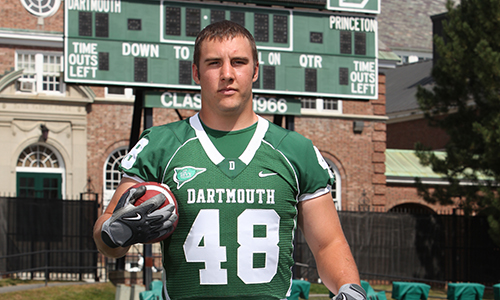
By Brandon Boyd,
As the coroner walked through Hunter Foraker’s apartment in Dallas, Texas on September 18, 2017, she noticed football helmets displayed on his shelf.
They called Kim Foraker, Hunter’s mother, and asked her if she was interested in having an autopsy on Hunter’s brain. In their search for answers following Hunter’s suicide, the Forakers agreed.
Four days earlier, Kim, her husband Bill, and their daughter Jordan all spoke with a jovial Hunter. He was getting a carwash. The new job was great.
“Looking back on it, we all think he was drinking and just a little happier than usual,” Jordan said.
"Perfect"
Hunter Foraker was born on May 11, 1992. Within a year, he was in skis and joining his dad Bill on the mountains of Colorado. His childhood was spent doing all kinds of outdoor activities like mountain biking, camping, hiking and fishing.
Normal kids may fib every so often. Young Hunter was steadfastly loyal and honest to his family.
He had a drive for perfection that carried over to the classroom and every field Hunter stepped onto.
Hunter was a teacher’s dream. He may not have been the very sharpest in his class, but he was quiet, humble, respectful, attentive, and determined to do his best. His competitive spirit pushed him to do more and do better than his peers.
“I always thought it was the pressure to be perfect,” Jordan said. “He would stay up studying and working for hours because things didn’t come as easy to him, but he would put in the time to understand it just the same.”
Hunter dabbled in many sports but found the most success in football. With Bill as his coach, Hunter started playing tackle football in second grade. His size, athleticism, and aggressiveness made him a natural fit at linebacker.
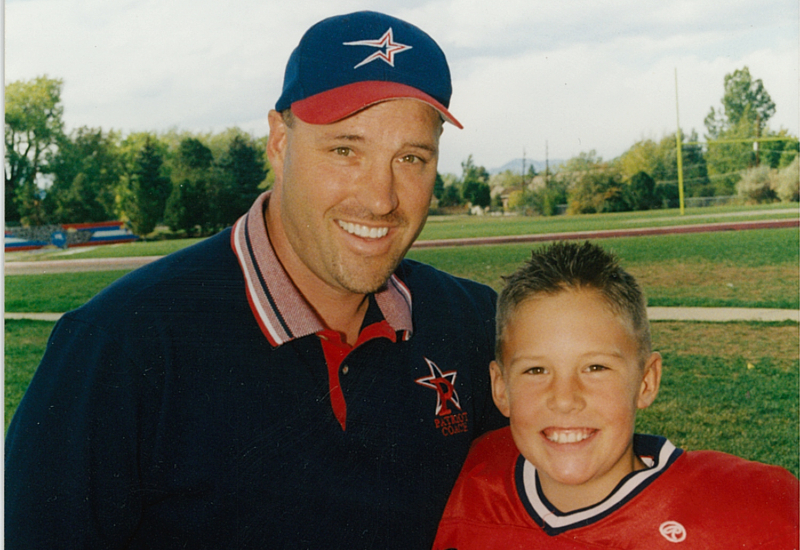
“It was so wonderful to see Hunter and Bill together in a sport that gave Bill so much pleasure and fulfillment as a youth and knowing that Bill was coaching Hunter in the correct methods of hitting and tackling so that Hunter would not be injured,” Kim said.
"I Remember Seeing 'Big Green' Everywhere"
It didn’t take long for Hunter to make a name for himself on the Mullen High School football team in Sheridan, Colorado. He made varsity his sophomore year and was named a captain the following two years.
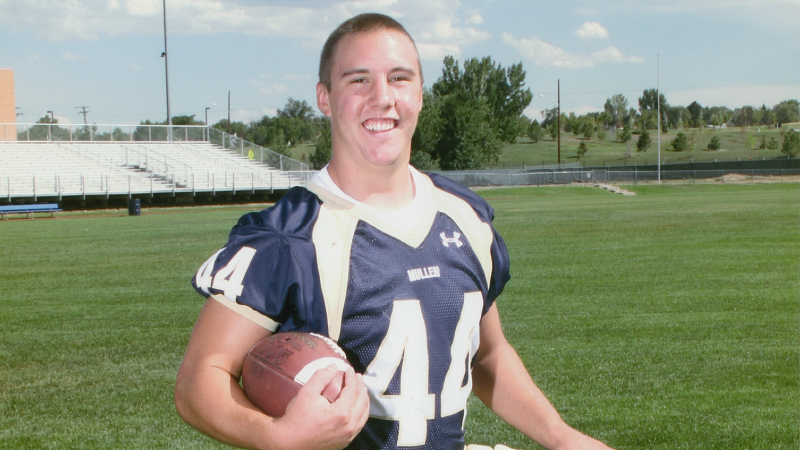
Hunter’s senior season at Mullen in 2009 included a long list of accomplishments. He recorded 100 tackles and led a Mullen defense that allowed just 5.7 points a game in their 14-0, state championship season. Hunter was named to the 5A First Team All-State roster and the state’s All-Academic team.
“I remember his senior year we went to some fancy dinner as a family, little did I know it was because Hunter was nominated for a pretty big award,” Jordan said. “Hunter acted like it was just another banquet. He was so humble.”
Football was a means to an end for Hunter. He decided before his junior year of high school that he wanted to attend an Ivy League school. He worked diligently and had great grades but knew he would struggle to get into his dream schools without football.
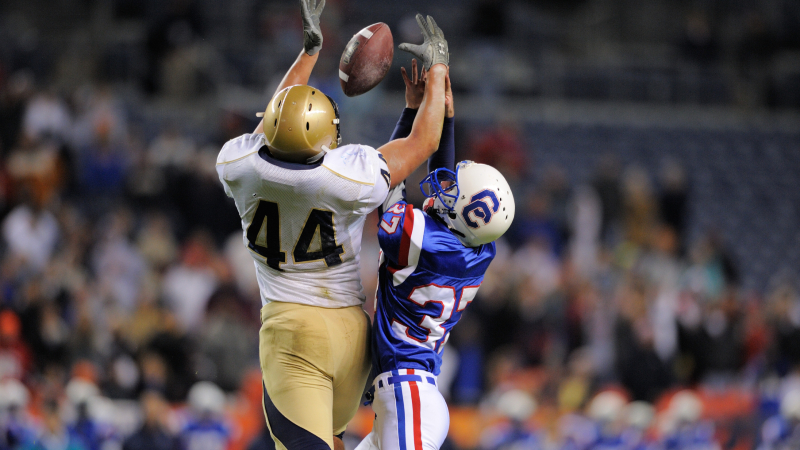
“He wanted to play with a higher level of player,” Kim said. “A player that wasn’t simply focused totally on football but had a future outside of football in mind.”
Dartmouth became the apple of Hunter’s eye. He loved that skiing was encouraged after the football season. He would be right at home in the cold Hanover, New Hampshire winters. He returned from his visit to campus and wrote “BIG GREEN” on everything he could at home. Later that year, he was ecstatic to learn he was accepted into Dartmouth and would play football there.
Football star. Ivy-bound. From the outside, Hunter succeeded in maintaining the image of perfection. But signs of deeper problems emerged in high school.
The confidence he played with on the gridiron was contrasted by a palpable anxiety in other parts of his life. His family believes the internal pressure he put on himself prevented him from trying new things.
In Hunter’s teenage years, massive mood swings began. Once, Bill confronted Hunter about why there was a scuff on his truck. The simple question caused Hunter to erupt and nearly strike his father.
Hunter began having terrible nightmares in high school. His dreams were so troubling he could never describe them to his family.
His junior year, Hunter intimated he wanted to end his life. After several consults, a psychiatrist told the Forakers that Hunter would be safe.
Hanover
Hunter was eager to start the nearly 2,000-mile journey from Littleton to Hanover. Once on campus, he adjusted well and quickly made new friends. He was a standout on the Dartmouth JV football team where he resumed his role as a magnet to opposing ballcarriers. Hunter’s freshman year was a success, save for a brutal biology course that dashed his pre-med dreams.
Hunter suffered a concussion in training camp prior to his sophomore season. The Forakers don’t know the details of the injury, but they know the injury left Hunter with a constant headache. Hunter had seen many teammates come back too early from concussions and wanted to avoid the issues that plagued them. He elected to retire from football. The sport had done its job and helped to set him on the path he so desired.
Once Hunter no longer needed to be a hulking linebacker, he became obsessed with his body image. He weighed himself several times a day and had strict discipline about what he ate.
After graduating with a double major in Environmental Science and Anthropology in 2014, Hunter stayed in Hanover to work for Dartmouth’s alumni relations department. He was in a place that gave him great joy over the last four years, but boredom and loneliness set in without the people who he had experienced his undergrad years with.
In February 2015, Hunter called home. He was in a rehab program for alcoholism at a Dartmouth Hitchcock hospital.
“It was surprising because he was so in control of everything,” Kim said. “He was so in control of his body.”
Tough Love
Hunter moved to Utah in August 2015 to work as an expert gearhead in Salt Lake City. There, he advised people on all the outdoorsman activities he grew up with.

He was closer to home but further from who his family had always known him to be. The Forakers sensed Hunter was intensely ashamed of his alcoholism. The boy who could not tell a lie was now lying to his parents’ faces.
He told his family he had been diagnosed with bipolar disorder, depression, anxiety, and was on a myriad of medications. The Forakers don’t know how much of what Hunter told them was true. They do know Hunter spent much of his two years in Utah rotating between emergency room visits, rehab facilities, and detox centers.
In January 2017, Hunter called home to let the family know he was going to Durango, Colorado for a ski trip. They began to worry when calls and texts to Hunter went unanswered later in the weekend.
Kim arranged a wellness check from local police. Police found Hunter. He had the highest blood alcohol level they had ever seen. The Forakers learned Hunter went to Durango to drink himself to death. He survived the suicide attempt and was taken to a nearby hospital.
Following the attempt, the Forakers were at a loss for how to support Hunter. They sought professional counsel and were advised to implement a strategy of tough love with their son.
“It was the most difficult thing we have every done in our life,” Kim said. “Professionals were telling us on one hand to practice tough love and to not have any contact with him. But your heart is telling you to be a loving parent and to be there unconditionally.”
Hunter turned against his family and set out on his own back in Utah. For the first six months of 2017, Hunter was in a revolving door of sobriety, rehab, and halfway homes. Later, the Forakers found out Hunter experienced eruptions during this time like what they saw in high school.
"The Old hunter Again"
In July 2017, Hunter finally contacted the family. They visited him in Salt Lake City where Hunter was in sober living. For the moment, it seemed like Hunter had tackled his demons.
Hunter came back home to Colorado for a brief stay with his family in August 2017. He was clean. He wasn’t looking for scales to weigh himself. He had a new haircut and bought new clothes. He was happy. The Forakers were thrilled.
Hunter apologized to Kim for his suicide attempt in January. He promised he would never do that to her again.
“I vividly remember telling Hunter that I was so proud of him,” Jordan said. “Because I did not want to have to tell his nieces and nephews one day that they did not have an uncle if he circled back into his behavior.”
Hunter found a job in Dallas, near where Jordan was attending school in Lubbock. Jordan and Kim came to Dallas to help Hunter decorate his new apartment. They left Hunter with smiles on their faces and hope in their hearts.
“Hunter was confident and looking forward to a new start,” Kim said. “We hoped that a new environment would be exactly what he needed.”
"That Sickening Feeling"
Hunter’s first week at work in Dallas went great. He told his family he loved his job and was jockeying to see if he could get Jordan a position there upon her graduation from college.
He reached out to his family on Thursday, September 14. If there was a problem, the Forakers couldn’t tell by how Hunter sounded that night.
But texts and calls slowed and then eventually stopped, just as they had when Hunter was in Durango.
“We definitely had that sickening feeling that something was wrong,” Kim said.
Hunter didn’t show up to work on Friday and had started drinking again. On Monday, September 18, 2017, Hunter Foraker died by suicide. He was 25 years old.
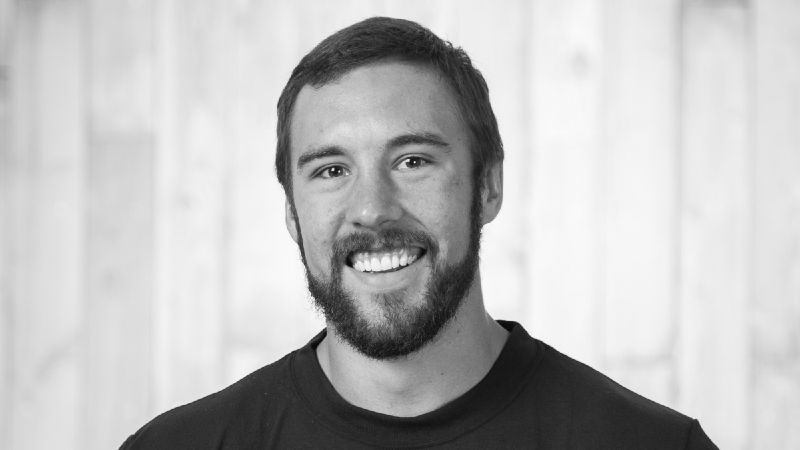
The Forakers' Message
The Dallas coroners’ autopsy on Hunter’s brain found evidence of Chronic Traumatic Encephalopathy (CTE). Perplexed, Kim Googled the degenerative brain disease. Within 30 minutes, she was on the phone with Lisa McHale, CLF’s Director of Legacy Family Relations.
Lisa guided Kim through the brain donation process at the VA-BU-CLF Brain Bank. Months later, Brain Bank researchers validated the results of the initial autopsy. Hunter was diagnosed with Stage 2 (of 4) CTE.
The diagnosis helped explain Hunter’s erratic behavior, sleep disturbances, mood swings, and substance abuse. Learning Hunter had CTE set the Forakers off on their own research journey. They knew about concussions, but they learned how repetitive subconcussive impacts catalyze the formation of CTE.
The potential dangers of subconcussive impacts have changed the family’s view on youth tackle football. Hunter’s youth tackle football career had once brought the Forakers immense joy. Now, the family advocates for Flag Football Under 14.
“Please don’t let your youth play tackle football,” Kim said. “Hunter began playing football at the age of seven and stopped playing at 19. He would have sustained substantially fewer subconcussive hits if we would have not placed him in youth football and waited to place him in football until his brain was fully formed.”
Kim didn’t know about CTE until after it was found in Hunter’s brain. The family hopes doctors working with former football players struggling with mental health symptoms or addiction consider CTE as a possible cause of their problems.
“Every time Hunter expressed he felt crazy, people brushed it off,” Jordan said. “When he started to drink heavily, it was the easy thing to say he was an alcoholic. When in reality, it was something much, much deeper that needs to be validated and explained.”
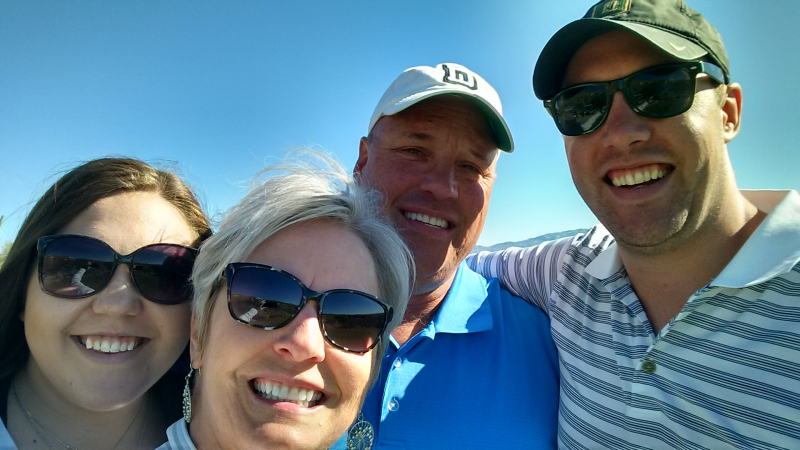
Three years after his death, the Forakers remember Hunter for his humility, kindness, and drive. They remember Hunter’s hugs, not his tackles.
“He gave the best bear hugs,” Kim said. “When he held your hand, you felt the love exude from his body.”
Suicide is preventable and help is available. If you are concerned that someone in your life may be suicidal, the five #BeThe1To steps are simple actions anyone can take to help someone in crisis. Learn the steps at BeThe1To.com.
If you are struggling to cope and would like some emotional support, call the National Suicide Prevention Lifeline at 1-800-273-8255 to connect with a trained counselor. It’s free, confidential, and available to everyone in the United States. You do not have to be suicidal to call.
Are you or someone you know struggling with lingering concussion symptoms? We support patients and families through the CLF HelpLine, providing personalized help to those struggling with the outcomes of brain injury. Submit your request today and a dedicated member of the Concussion Legacy Foundation team will be happy to assist you. Click here to support the CLF HelpLine.
Suicide Prevention Resources

Nobody should have to go through a crisis alone. Dial 9-8-8 if you or a loved one is in crisis or suicidal.
Suicide Prevention Lifeline
We can all play a role in preventing suicide. Learn the five steps to help you #BeThe1To support someone in crisis.
#BeThe1To Resources